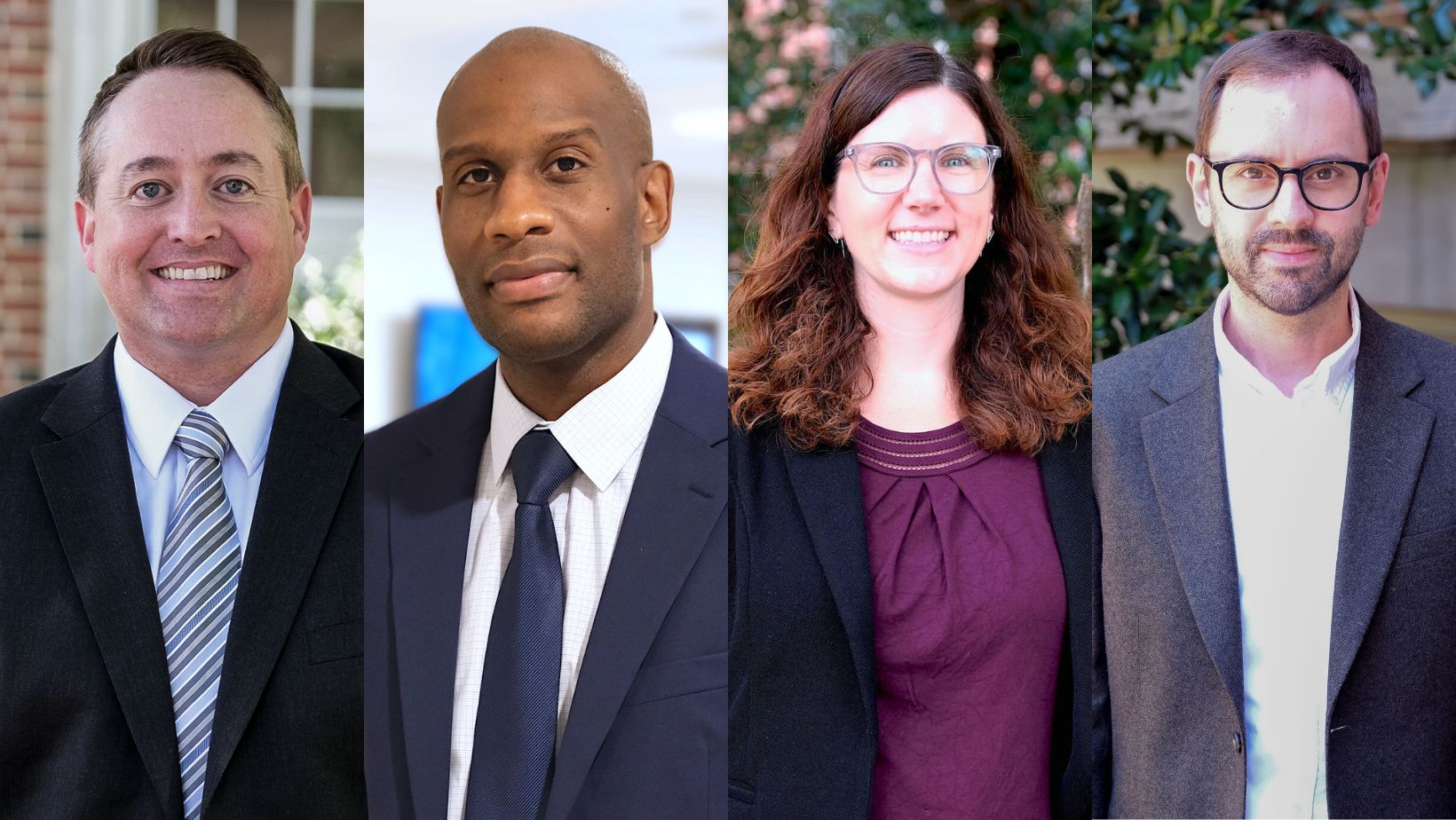With the beginning of the 2023-24 academic year, the UNC School of Education welcomes four new faculty members — Casey Calhoun, Ph.D., Christian Ehret, Ph.D., Courtney Hattan, Ph.D., and Joseph Williams, Ph.D. — who bring to Chapel Hill a range of expertise and ongoing research activities that span fields in education.
“I am thrilled to welcome these exceptional new faculty members to the School,” said Fouad Abd-El-Khalick, Ph.D., dean of the School and Alumni Distinguished Professor. “Their expertise and scholarly record immediately enrich our community and will contribute to the growth and success of our future educators and scholars. We look forward to supporting their research and service endeavors that hold great promise for our fields and, most importantly, for learners and the communities we serve.”
Learn more about the School’s new faculty members below.
Casey Calhoun, Ph.D.
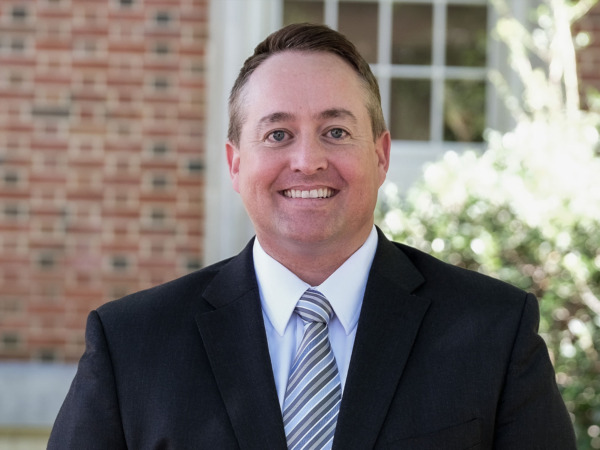
Casey Calhoun, Ph.D., joins the School as an assistant professor in school psychology.
Prior to joining the School, Calhoun served as faculty at the Medical University of South Carolina (MUSC) and in the UNC School of Medicine, where he was an investigator on numerous federally and locally funded research projects and contributed to clinical training efforts. Calhoun also founded a private practice where he provided office- and school-based mental health services to youth and families in the greater Raleigh area, while supervising psychology interns, externs, and postdoctoral clinicians.
Calhoun’s research uses a combination of experimental, school-based, and prevention-oriented studies to examine stress and coping during adolescence. His lab-based work examines the neurobiology and subjective experience of stress reactions, incorporating various methodologies (EEG, psychophysiology, neuroendocrine) to establish stress response profiles connected with increased risk of internalizing symptoms, such as anxiety, depression, and suicidal ideation. His work is largely rooted in the interpersonal context, with a particular focus on understanding how teens’ interactions with close friends influence stress regulation.
Calhoun is currently working to translate prior research findings into technology-driven prevention tools for teens that support psychological well-being and healthy relationships. This line of work is informed by his prior research, years of experience providing therapy and assessment services for youth in different clinical settings, and experience in mobile app development. Calhoun said he is particularly passionate about developing prevention tools and service delivery models oriented toward underserved, high-risk youth, especially those who have experienced psychological trauma.
Calhoun received his Ph.D. in Clinical Psychology from UNC-Chapel Hill, after completing an internship at the Charleston Consortium Psychology Internship Program. He completed an NIMH T32-funded postdoctoral fellowship at the MUSC National Crime Victims Research and Treatment Center (NCVC), where he specialized in researching and treating psychological trauma in children and adolescents.
Christian Ehret, Ph.D.
Christian Ehret, Ph.D., joins the School as an associate professor. Before coming to Carolina, he was a faculty member in the Department of Integrated Studies in Education at McGill University in Montreal.
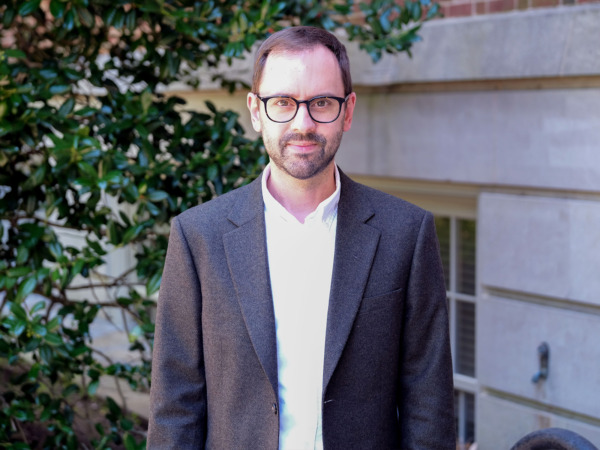
Ehret employs a design-based research approach to delve into the impact of emerging technologies and digital platforms on equitable literacy education and curriculum development. His ongoing projects aim to examine how children and youth form connections with emerging technologies through their experiences with reading, writing, and digital media production. By investigating this intersection, Ehret works to uncover insights that will inform the development of inclusive educational practices and empower learners to navigate the digital landscape effectively.
Ehret also explores various school, family, and community resources that can
contribute to establishing and sustaining connections between emerging technologies and literacy. Through his funded research initiatives, he works to create partnerships with communities and involve children and adolescents from various regions of the world.
The results of his research inform critical pedagogies and curriculum development in literacy education, both in formal and informal learning environments such as public schools, libraries, community youth centers, and children’s hospital schools. Ehret is also a co-editor of the preeminent literacy research journal Reading Research Quarterly.
Ehret holds a master’s degree in English education from the University of Georgia and a Ph.D. from Vanderbilt University in learning, teaching, and diversity, with a specialization in language, literacy, and culture. He has served as a Bristol Next Generation Visiting Researcher at the University of Bristol and a Teaching Fellow in the Center for Teaching at Vanderbilt University.
Courtney Hattan, Ph.D.
Courtney Hattan, Ph.D., joins the School as an assistant professor in the science of reading. She previously served as an assistant professor of elementary literacy education at Illinois State University.
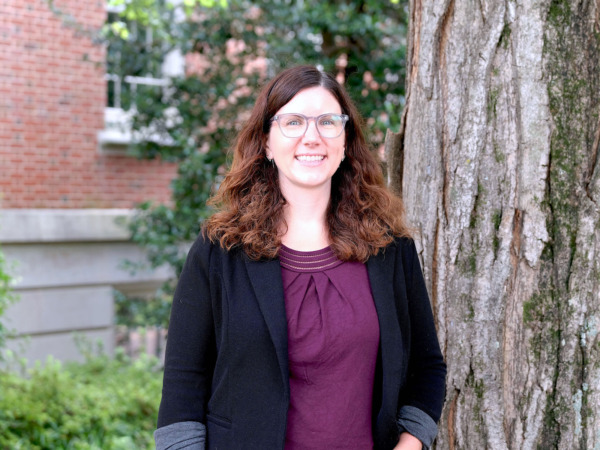
Hattan’s research explores how readers’ knowledge impacts their comprehension and text processing. Operating through an equity lens, Hattan bridges sociocultural and cognitive theories of learning and literacy, employs mixed-methods research designs, and seeks to build community-informed research-practice partnerships. Hattan’s work has examined reading materials commonly used in classrooms, observed literacy instruction, and evaluated various methods for helping students recall and apply their knowledge before, during, and after reading.
Her work has been published in leading academic journals including Review of Educational Research, Reading Research Quarterly, Journal of Educational Psychology, Reading and Writing: An Interdisciplinary Journal, Reading Psychology, and Literacy Research: Theory, Method and Practice. Hattan seeks to bridge research-to-practice gaps by providing professional learning opportunities for teachers, as well as disseminating her work through avenues that speak directly to teachers.
Hattan obtained a master’s degree in education with an emphasis on reading from Johns Hopkins University and her Ph.D. in Educational Psychology from the University of Maryland. Before academia, Hattan worked as a language arts and social studies teacher at the elementary and middle school levels.
In 2019, Hattan received the International Literacy Association Timothy & Cynthia Shanahan Outstanding Dissertation Award. She was also recognized as a Reading Hall of Fame Emerging Scholars Fellow.
Joseph Williams, Ph.D.
Joseph Williams, Ph.D., joins the School as a professor in the School Counseling program.
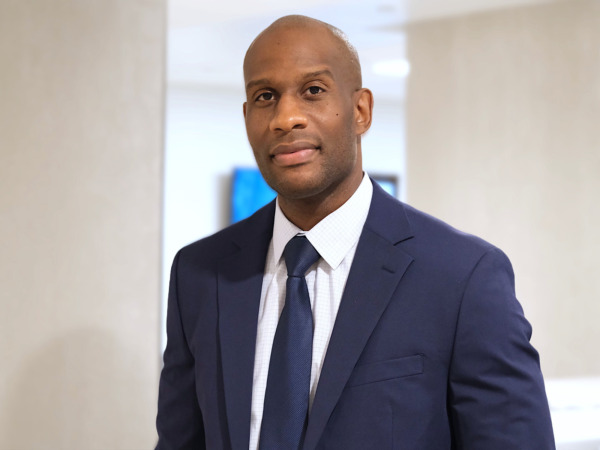
Prior to joining the faculty at the School, Williams held tenured faculty positions at George Mason University and in the Counselor Education Program at the University of Virginia (UVA) and was the faculty research director for the Starr Hill Pathways program at the UVA Equity Center — a free, year-round college and career readiness program dedicated to empowering the youth of Charlottesville from historically minoritized communities, specifically in grades 7-12.
Williams’s research primarily focuses on three areas: academic resilience among students of color and those from low-wealth families; protective behavioral strategies that K-12 students of color use to cope with racism-related stress; and multicultural and social justice training practices for helping professionals. His work has been published in an array of scholarly journals including the Journal of Creativity in Mental Health, Journal for Specialists in Group Work, and Journal of Counseling and Development.
In addition to publishing scholarly articles and book chapters in these areas, he consults with school districts, communities, associations, and corporations to improve diversity, inclusion, and equity efforts and engage people in productive dialogue and action. In 2019, driven by an interest in promoting equity, diversity, and inclusion, Williams embarked on an entrepreneurial journey and established Affirm Consulting.
Williams received his M.S. in Clinical Mental Health Counseling from Minnesota State University and his Ph.D. from the University of Iowa in counselor education and supervision. He has over ten years of practical experience counseling children and adolescents in school and mental health settings.
